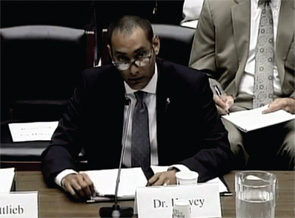
It’s September, and that means that again this year many ACR/ARHP members and their patients were on Capitol Hill Advancing Rheumatology! by discussing important issues and continuing to build relationships with decision makers. I am proud of this work done during the annual Advocates for Arthritis event. I thought I would take this opportunity to provide an update on legislative activities. As we all know, the government influences our subspecialty in numerous and potent ways. I cannot cover every issue we are addressing, but I will highlight some of the most significant on which your colleagues and the ACR are focusing.
Advocacy has always been near to my heart. I have been delighted to watch how the scope and effectiveness of the Committee on Government Affairs (GAC) has grown, and I am proud of our sophisticated approach to federal and, now, state issues. Through the efforts of our volunteer leaders, staff, lobbyists and advocates, we are able to stay nimble and make headway in Washington, D.C. The Simple Tasks campaign has also been of great value in helping legislators know us and remember us (www.simpletasks.org). In an election year, with so many issues (including international crises) competing for attention, we still have managed to move your priorities forward. Most of our issues currently fall into three categories: access to rheumatology, access to treatment and funding for research.
If rheumatologists & rheumatology health professionals are not adequately paid, then patients’ access to our expert care will be jeopardized.
Access to Rheumatology
The sustainable growth rate (SGR) payment formula, which continues to mandate massive cuts and requires congressional rescue each year, remains a focus. I know some members think our annual struggle for relief from the anxieties of the SGR is a Sisyphean task, but the ACR and GAC do not, and so it continues to demand our action. If rheumatologists and rheumatology health professionals are not adequately paid, then patients’ access to our expert care will be jeopardized. This year we have made meaningful progress. In fact, in 2014, for the first time ever, a bill to permanently repeal and replace the SGR was passed in Congress. H.R. 4015 passed along party lines. However, because the mechanism to pay for the “fix” was felt to be partisan, it had no chance of being passed in the Senate.
The partisan end to this chapter of the SGR saga did not reflect the bipartisan, bicameral nature of the agreement itself. This agreement was years in the making. The ACR was asked several times to help with the language of the agreement, and several of our recommendations were incorporated. The opportunity for us to have a voice in the crafting of this legislation was a landmark in our endeavors to represent the needs of our members and their patients. Although not perfect, the bill is our best chance for repealing the SGR and replacing it with a formula recognizing the care we provide for patients. If passed, the agreement will afford us more of a say in quality metrics that will be incorporated in new payment models based on quality. We have heard from congressional leaders that the SGR will almost certainly not be taken up in the lame duck session, so we hope to help get this done in early 2015.
The ACR has played an active role to promote more clinically meaningful measures of quality care for rheumatologists, along with the development of tools to make it easy for rheumatologists to measure and report on quality measures for federal programs. The ACR’s RISE registry launched earlier this year, and it’s now certified by CMS as a qualified clinical data registry for quality reporting and meets the Meaningful Use requirement of reporting to a specialty registry. Easy reporting of performance on quality measures will help rheumatologists avoid payment penalties from the reporting programs and gives rheumatologists a better chance for payment increases in whichever new payment system is eventually implemented.
Because Congress could not agree on how to pay for the repeal of SGR, they passed yet another SGR patch. The patch ends March 31, 2015, when 20%-plus cuts to Medicare reimbursement will happen unless Congress acts (again). Congress included provisions in the latest patch that constitute a major win for rheumatology and marks us as successful in our efforts to really make change for you.
The patch included a one-year delay of ICD-10 implementation, until Oct. 1, 2015. The ACR was on Capitol Hill and at RheumPAC fundraisers discussing problems with ICD-10 when the opportunity to include the ICD-10 delay in the latest patch presented itself. Our advocacy activities put us at the center of the process, and the ACR’s work at that key time played a major role in making the ICD-10 delay a reality. This was something you told us was necessary, and we were able to help get it done for you and the rest of the House of Medicine. Your RheumPAC contributions are partly responsible for putting us in this position. Your e-mails and calls to Congress also played a crucial role in enhancing the ACR presence in critical meetings at auspicious times.
The ICD-10 delay was something pundits said could not be done and which the HHS Secretary said would never happen, but we got it done together. Although rheumatologists should continue to prepare for ICD-10, the ACR also has a legislative solution to ease implementation challenges for practices. Our bill received positive feedback on the Hill, and we will be well positioned to move it if necessary.
Access to Treatment
As rheumatologists, we are fortunate to have breakthrough treatments that can significantly improve our patients’ lives. Because of cost, access to these treatments is an issue for too many people. H.R. 460, the Patients’ Access to Treatments Act, is our bill to make biologics more affordable by limiting cost sharing in commercial, employer and exchange plans with specialty tiers. These schemes put these medications and the improvements associated with them out of the reach of our patients. This is shameful and unacceptable, and it calls us to action.
The Arthritis Foundation (AF) has been our strong partner, along with the Lupus Foundation, National Psoriasis Foundation, Spondylitis Association and 20 other patient and physician groups. The ACR and AF co-founded the Coalition for Accessible Treatments, under which these organizations work together. This effort, along with your letters, calls and meetings, has produced more than 130 bipartisan co-sponsors for H.R. 460, and we have been able to present testimony before Congress to explain the importance of our bill. Next steps are the introduction of a Senate bill and a hearing in the Senate committee. Our advocacy staff will alert you when a Senate bill is introduced so you can urge your Senators to sponsor it.
The facts that the ACR was invited to testify before Congress on access to treatments and was the only healthcare provider society invited to testify were important milestone markers along the inroads we have made together in Congress. You can view the testimony, eloquently presented by GAC Chair William F. Harvey, MD, MSc, on the Energy and Commerce website.

Funding for Research
Another potential breakthrough, although it was fleeting, was related to the federal budget. For the first time since 2009, our nation had a budget agreement! We had hoped it would end the string of budget standoffs and continuing resolutions (and the flat research funding that results from those CRs), and that normal appropriations processes would again be followed, but this has not materialized.
It appears funding the federal government and budget appropriations will again be managed by continuing resolutions. This creates yet another perennial problem for NIH funding. Although about half of NIH sequester cuts were eventually rolled back, funding is still below pre-sequester levels, and it appears the NIH will be funded near the same level as last year. We all know that this is unacceptable. It seriously jeopardizes the U.S. medical research enterprise. The important work of many of our members is threatened.
We will continue to fight for restoration and increases in NIH funding. We also hope that new solutions are adopted by Congress, such as Senator Tom Harkin’s introduction of the Accelerating Biomedical Research Act. This forward-thinking proposal would increase NIH funding by exempting it from traditional budget caps.
Also not addressed by Congress were cuts to Part B drug reimbursements. The ACR is addressing Medicare reimbursement cuts by partnering with oncologists to support H.R. 1416, which would reverse sequester cuts to Part B drugs and reimburse lost monies. Although taking a piece-by-piece approach to the sequester has been an unpopular approach with many Democrats, we remain optimistic that our persistence will prevail.
State & Local Advocacy
We must advocate at all levels of government, and as I have described before, the ACR has increased its focus on issues primarily decided at the state level. We are working with state rheumatology societies. Under the leadership of the Affiliate Society Council chaired by Angus Worthing, MD, and, of course, with the help of our very capable staff, I have been proud to sign dozens of letters on behalf of the ACR. We are pushing bills in an expanding number of states to address state issues, including biosimilars, specialty tiers, step therapy and prior authorization.
You Are Key to These Efforts
I am proud of our progress this year, and I hope you are, too. As we enter the election season and the end of this congressional session, there is reason for optimism. But the next several months will be critical. We need your involvement and your support for RheumPAC if you are a U.S.-based ACR or ARHP member. Please encourage your colleagues to learn more about RheumPAC and how they can lend their support at the ACR website.*
RheumPAC has proved itself a powerful effector arm of ACR advocacy policy, and we need members’ support to make it stronger. Visit the ACR’s Legislative Action Center at www.rheumatology.org/advocacy to read more about the issues and the many ways you can make a personal difference as you help us with Advancing Rheumatology! Don’t hesitate to call upon the ACR’s staff as you make your own mark in these critical areas affecting your practices and patients.

Dr. Joseph Flood is a rheumatologist at the Columbus Arthritis Center and adjunct professor of internal medicine in the Division of Rheumatology at The Ohio State University College of Medicine and Public Health, both in Columbus. Contact him at [email protected].
*The purpose of RheumPAC is to promote rheumatology. All contributions are voluntary.
Learn More
- Get information about the RISE registry by writing to [email protected].
- For ICD-10 assistance, send an e-mail to [email protected].
- Read the testimony of GAC Chair William F. Harvey, MD, MSc, at http://docs.house.gov/meetings/IF/IF14/20140612/102332/HHRG-113-IF14-Wstate-HarveyW-20140612.pdf.
- Learn how U.S. ACR/ARHP members can donate to RheumPAC: http://www.rheumatology.org/Advocacy/Rheumpac/Donate_to_RheumPAC.
- Contact the ACR’s advocacy staff at [email protected].
